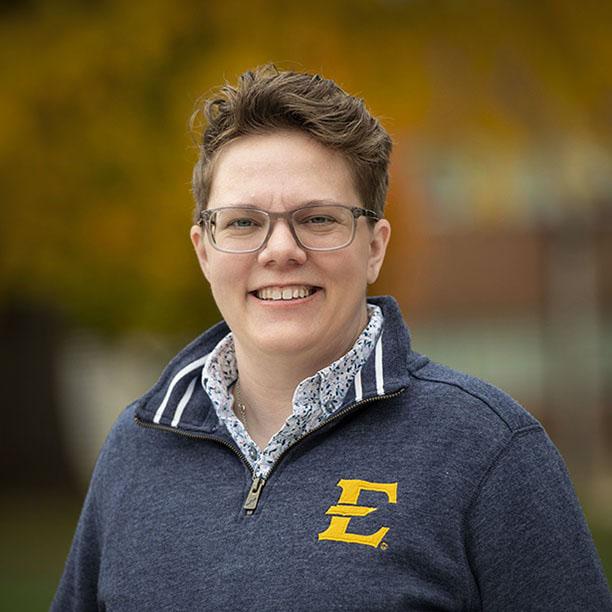While growing up in McMinnville, ETSU doctoral student Kristen Surles became involved
in community service through her church and school. While she didn’t know it at the
time, the yard work she did for the elderly and disabled in her hometown and planting
trees was the start of her journey toward a career in public health. Summer service
trips with her church involving home repairs and other tasks led to a job for three
summers with Group Cares, during which she traveled the country and worked on projects
in 38 states. 
“That instilled in me the drive to help people in whatever way that I can,” Surles said. “I think the biggest thing was being able to see the bigger systemic issues that a lot of people deal with that make it almost impossible to improve health and maintain a healthy lifestyle. Most of my family is in health care, so I naturally gravitated to it, but having that kind of experience is what got me into public health.”
Surles began college at Tennessee Tech and transferred to ETSU, where she graduated with a B.A. in anthropology before earning her master’s degree in public health at the University of South Florida.
Now a doctoral student in health management and policy in the College of Public Health, Surles is a graduate assistant in CARE Women’s Health and an Emerging Scholar in Family Planning, with her work funded by a grant from the Society of Family Planning Research Fund. As a part of this, she is conducting research for her dissertation on the experiences of youth at health departments and federally qualified health centers in two southeastern states in obtaining patient-centered contraceptive care and the clinics’ capacity to address their needs.
“I’m interested in improving equitable access to contraceptive services, comprehensive sex education and mental health resources for youth,” said Surles, who was drawn to this particular field of research after earning her master’s degree by working for a non-profit agency that provided counseling to teens. “A lot of kids don’t have access to care. I found that a lot of schools are overwhelmed and under-resourced to provide any kind of care to youth. I was the only adult resource they could talk to about sexual reproductive health. Teens should have the right information to make the right choices for themselves.”
After completing her doctorate in May 2023, Surles hopes to work in advocacy and policy in either government or the non-profit sector, focusing on all aspects of adolescent health from reproductive and mental health to equitable access to health care in general.
“I’m trying to remain flexible with public health,” she said. “With public health, it’s where the issues take you. Right now, sexual reproductive health care is in the spotlight, and mental health is in the spotlight because of COVID. Five or 10 years from now, that might change.”
 Sam Wilson West Parking Lot C...
Sam Wilson West Parking Lot C...